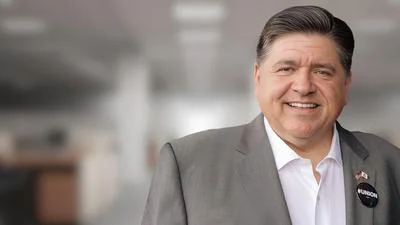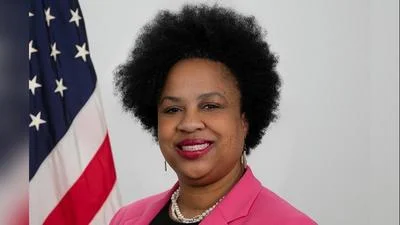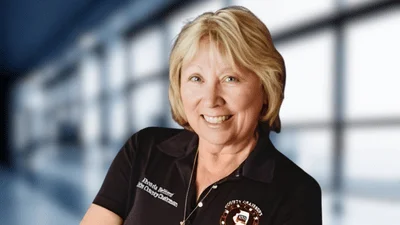State Rep. Robert Rita (D-Blue Island) had the House Executive Committee’s full attention Monday over non-riverboat gaming legislation.
“I have been working on this issue for years,” Rita said of SB7, which will allow for more gambling on and off the water. “We did not change anything in SB7 as it was sent to the House.”
Only adding a few provisions, Rita broke down SB7 to detail all new inclusions and components, beginning with the addition of six new riverboat casinos in Chicago, Lake County, the South Suburbs, Williamson County, Rockford and Danville.

Rep. Robert Rita (D-Blue Island)
“We are allowing these riverboat casinos to move their positions from 1,200, which they currently are now, to 1,600 positions with a cap to go up to 2,000 with a use-it-or-lose-it provision,” Rita said.
Peoria Par-A-Dice Hotel Casino will be allowed to locate within 10 miles of its current location, according to Rita, adding the bill language also permits all casinos to maintain a temporary location for 24 months with an additional 24-month extension if needed.
SB7 is calling for Chicago to be allowed to have 4,000 (gaming) positions, all land-based casinos, which also allows for temporary site location while construction is underway, he added.
“We are going to allow for slots at Midway and O'Hare Airports, and we are creating a new authority to oversee the casino and its operator by the Illinois Gaming Board,” Rita said.
Like the riverboat casinos, the land-based gaming clubs will be subject to all fees and taxes, and any profits will go to the city to pay for police and fire pension funds, according to the sponsor. Rita added horse tracks will also see additions with locations in Hawthorne and Arlington allowed 1,200 positions and Fairmont up to 900 positions.
“Also Quad City Downs will get 350 positions initially and eventually can go up to 900 positions once they conduct 96 live racing dates within a 15-day period,” Rita said, adding the horse tracks will also have use-it-or-lose-it provisions, and tax rate and fees as casinos.
As far as ethics are concerned, the Racing and the Gaming boards will be equally governed, he said, noting the bill language also addresses political contributions.
“The Senate did a nice job of putting this together in balancing all these different interests involved in this,” Rita said.
The House added a few things, however, according to Rita.
“We are requiring that local communities have to pass an ordinance to support the local casino if they get it,” he said.
The House also allowed for table games at racetracks that will be taxed the same amount as casinos.
After detailing the bill in full, the first witness to testify at the 90-minute hearing was Anita Bedell, executive director of the Illinois Church Action on Alcohol and Addiction Problems.
“We are concerned about the Chicago casino because it looks like it was written for one company,” Bedell said. “Also Quad City Downs, I don’t believe has had live racing for 20 years or more.”
Also concerned about lightened levies, Bedell noted the 30 percent tax exemption for promotional items such as comped meals and hotel rooms.
“This is a huge giveaway,” Bedell said.
Countering Bedell’s comments, Tony Petrillo, manager of Arlington International Racecourse, said the track fully supports SB7.
“We agree with the findings of the General Assembly that this bill is vital to our industry,” he said.
With fierce competition in surrounding states, Petrillo said competing racehorse owners are out-migrating.
“We are losing those residents and the taxes they pay,” Petrillo said.
In full agreement, local leaders were present to promote the bill, with East St. Louis Mayor Emeka Jackson Hicks also noting the importance of Casino Queen in her district.
“As a long-term corporate citizen, Casino Queen has provided many jobs for East St. Louis citizens in a time when jobs have been desperately needed,” Jackson Hicks said.
With more proponents than opponents, Ivan Fernandez, executive director of the Illinois Gaming Machine Operators Association, is on the fence over SB7, noting that while the bill will help keep Illinois economically energized, there is not a level playing field as far as sweepstake machines and higher taxes.
Concluding, Rita asked each committee member for a favorable vote for SB7 to move forward, which he was not given. With a due pass motion and a 5-4 vote, the bill remains in committee.






 Alerts Sign-up
Alerts Sign-up